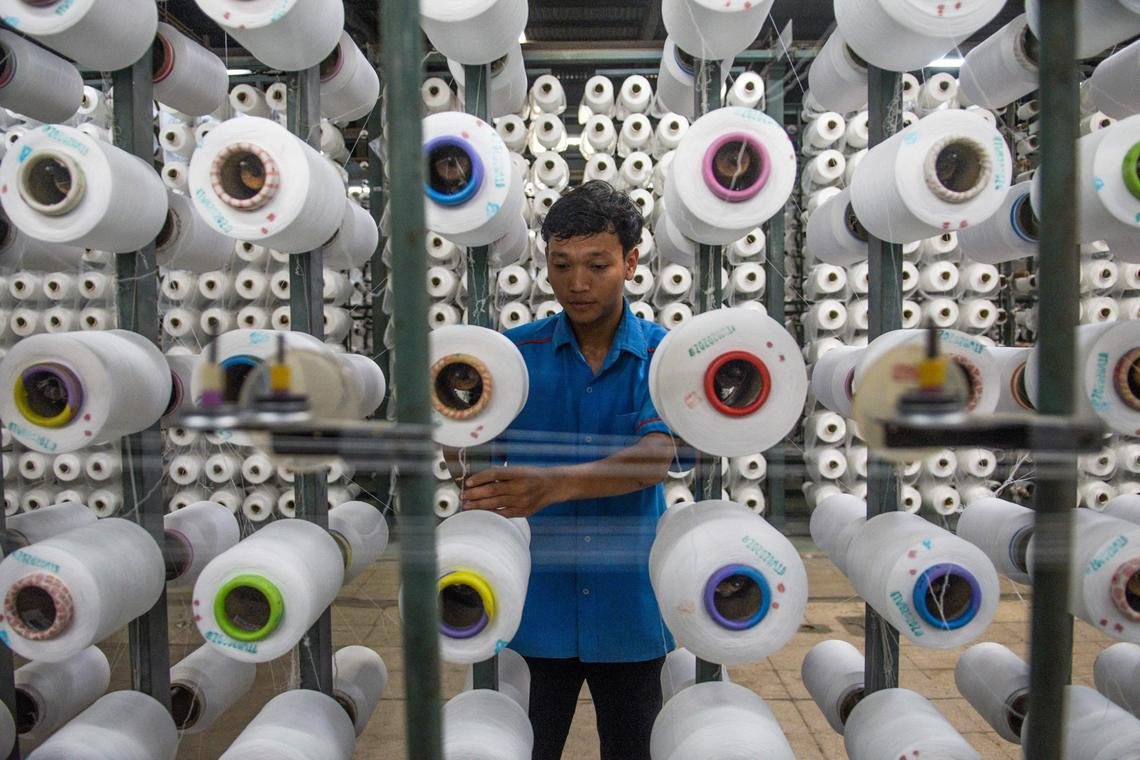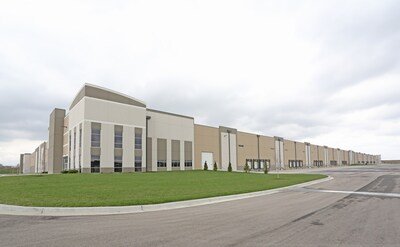JAKARTA – Indonesia’s economy grew at its slowest pace in more than three years amid tepid household consumption, and a sharp drop in government spending and investment, putting President Prabowo Subianto’s 8 per cent goal even further out of reach.
Gross domestic product (GDP) in the three months until March expanded 4.87 per cent from a year earlier, the statistics office said on May 5. That is below the 4.92 per cent median estimate in a Bloomberg survey and is the lowest growth since the third quarter of 2021. On a quarterly basis, GDP fell 0.98 per cent, more than the estimated contraction of 0.9 per cent.
The data is bad news for South-east Asia’s largest economy, which needs domestic demand to help insulate it from the escalating global trade war. US President Donald Trump has threatened Indonesia with a 32 per cent so-called reciprocal tariff, among the highest in the region, though it has been pared back to 10 per cent for now to allow time for trade negotiations.
The rupiah pared gains to 0.2 per cent against the US dollar amid a broad rally in Asian currencies.
Indonesia’s central bank has already downgraded its outlook for economic growth in 2025 but has opted to keep interest rates steady for three straight months to protect the currency. Given the bleak global backdrop, many economists have also slashed their growth forecast for Indonesia to below 5 per cent in 2025.
“Largely muted reaction from GDP as gains in Asia ex-Japan currencies amid hopes of US-China trade talks and soft dollar trend were some of those factors underpinning the rupiah’s recent round of appreciation,” said Mr Christopher Wong, forex strategist at OCBC Bank.
The disappointing data may further bolster the case for further policy easing by Bank Indonesia, according to Bloomberg Economics.
“The slump in investment has domestic as well as external drivers. What’s more, the worst has yet to come,” Bloomberg Economics analyst Tamara Henderson wrote in a report.
“The much softer growth outlook, together with already benign inflation, is likely to prompt Bank Indonesia to cut its policy rate by another 25 basis points later this month – especially if the rupiah can hold on to recent gains.”
Household consumption, which accounts for the bulk of Indonesia’s national output, grew just 4.89 per cent in the first quarter, the slowest pace since end-2023. That was even as the Ramadan festivities – typically the busiest travel and spending season of the year – fell in March 2025 after falling in April 2024.
The weak reading also came despite government stimulus measures such as discounts on electricity tariffs and plane tickets, and relatively slow inflation.
Broader economic activity was held back by a 1.38 per cent contraction in state spending. Mr Prabowo had ordered his government to cut spending across a wide range of sectors, including infrastructure and travel, to reallocate more funding to his priority programmes like the distribution of free school meals.
Gross fixed capital formation rose 2.12 per cent, its weakest growth in two years. According to DBS Bank economist Radhika Rao, uncertainty about the Trump tariffs likely impacted companies’ capital expenditure plans.
BLOOMBERG
Join ST’s Telegram channel and get the latest breaking news delivered to you.





